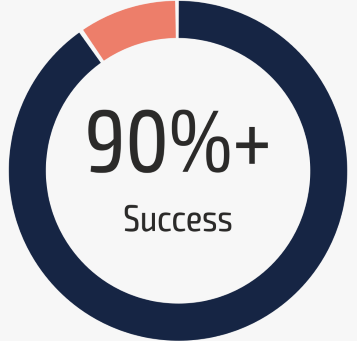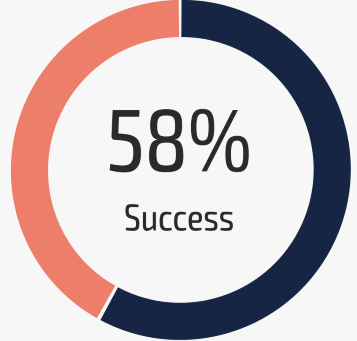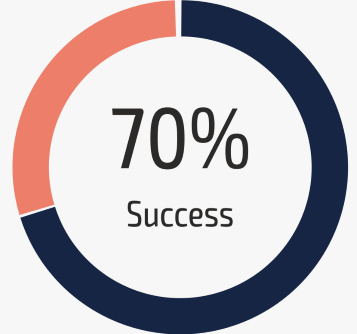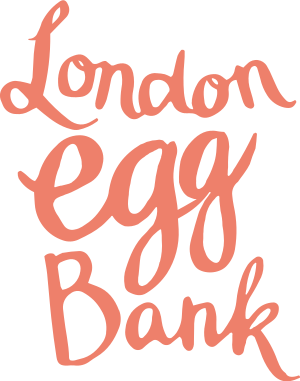What is Egg Sharing?
Egg sharing is a fertility treatment in which a woman undergoing IVF treatment donates half of her eggs to another woman who is unable to produce her own eggs. The egg sharer receives reduced-cost fertility treatment. London Egg Bank offers egg sharing for women interested in freezing eggs or discounted IVF.
WHO IS ELIGIBLE FOR EGG SHARING?
To be eligible for egg sharing you need to meet the following criteria set out by the Human Fertilisation & Embryology Authority (HFEA) and London Egg Bank:
You should be:
- Between 21-34 years of age
- A non-smoker
- Healthy with a BMI between 18-28
- An ovarian reserve within the normal range
You shouldn’t have:
- Personal or family history of inheritable diseases
- Untreated polycystic ovarian disease
How does it work?
The IVF with Egg Sharing
You’ll be invited to the clinic for a fertility assessment with one of our consultants. This involves a blood test for AMH, semen analysis (if needed) a scan and a doctor consultation to review your result and medical information for you and your partner (if applicable). This will help assess your current fertility health and your suitability for egg sharing.
If suitable, an initial consultation with our coordinator will be offered. This coordinator will explain the regulations of egg donation in the UK, and how it works, and will set up your treatment plan.
After being accepted to the egg-sharing programme, your coordinator will talk you through a number of consent forms, go through the medication that you’ll need for the cycle and arrange for our counsellor to make sure you fully understand the implications of the programme.
From the beginning of your menstrual cycle, our egg donation team will guide you throughout the process. They will also schedule scan appointments to monitor your response to the stimulation medication you receive over two weeks. During this time, you will need approximately three to four scans to track your progress and adjust your medication as necessary.
Once scans show that you’re ready, we’ll collect your eggs in a safe and painless procedure that takes about 30 minutes.
After collecting the eggs, they will be fertilized with the sperm of your partner or donor. The remaining eggs will be donated to London Egg Bank and frozen for patients who need fertility treatment with donor eggs.
Following egg collection, an embryologist will discuss with you the fertilization of your eggs and the number of embryos that have developed. Embryos are typically cultured in the lab for five to six days after egg collection until they reach the blastocyst stage. Based on your treatment plan, the embryologist will either freeze all your embryos for a Frozen Embryo Transfer in a subsequent cycle or inform you about the timing of your fresh embryo transfer.
Thawed embryos can be transferred in a natural cycle (without medications) or in a cycle prepared with hormone supplements. Your fertility specialist will discuss with you the most suitable treatment based on your medical history and age.
Typically, a fresh embryo transfer occurs five to six days after egg collection when the embryo has developed into a blastocyst.
Nowadays, to reduce the chances of multiple pregnancies, most women undergo a single embryo transfer. The procedure involves inserting a speculum into the vagina (similar to a smear test) and placing a catheter containing the embryo into the uterus.
Following embryo transfer, there is a 12- to 14-day waiting period to determine the success of your treatment. This two-week interval is often challenging, causing anxiety about the treatment's outcome for most women and couples. The London Egg Bank provides support calls throughout the treatment process.
In case of a positive pregnancy test, you need to contact the clinic to book an early pregnancy scan. If, unfortunately, the treatment is unsuccessful, a review consultation will be arranged to discuss the cycle and explore any potential next steps. Counseling and support will be available during this period if needed.
What our patients say
Success Rates
We have one of the highest numbers of egg freezing and thawing cycles with frozen eggs in the UK. We manage the egg-freezing process from start to finish to ensure the highest quality of eggs. As a result of our consistent and reliable approach, many healthy babies have been born through frozen eggs. Our success rates show you our focused approach really works.

Egg survival rate

Cumulative pregnancy rate after one embryo transfer from a single cohort of frozen eggs

Cumulative pregnancy rate after two embryo transfers from a single cohort of frozen eggs
Prices
IVF with Egg Sharing £750
Includes —
- Administration and coordination
- Egg-sharing screening blood tests
- Partner blood test
- Medication (until the embryo transfer)
- Follicular tracking scans
- Cycle monitoring blood tests
- Surgical egg collection procedure
- Preparation and culture of eggs and sperm
- ICSI
- Time-lapse imaging
- Embryo glue
- One fresh embryo transfer
- One bhcg pregnancy blood test
- One viability scan for pregnancy
- Review consultation in the event of a negative outcome
- Counselling session
*Additional cost:
Extended (5-day) embryo culture to blastocyst stage £1050 (if applicable)
You will need an initial consultation first to be qualified, from £250 Book here
Egg Sharing
Read more


Alice’s Story
Alice understood how important it was to become a donor after going through IVF challenges herself.

Why Do Women Freeze and Share Their Eggs?
We carried out a survey to examine the motivations of women who were part of the 'Freeze and Share' programme, and assess the extent to which altruism plays a role in their decision.
Put your fertility on hold
Egg freezing is a way of preserving your eggs. They will stay the same age as when they were frozen.
Get Started
Please contact us for your free initial consultation

